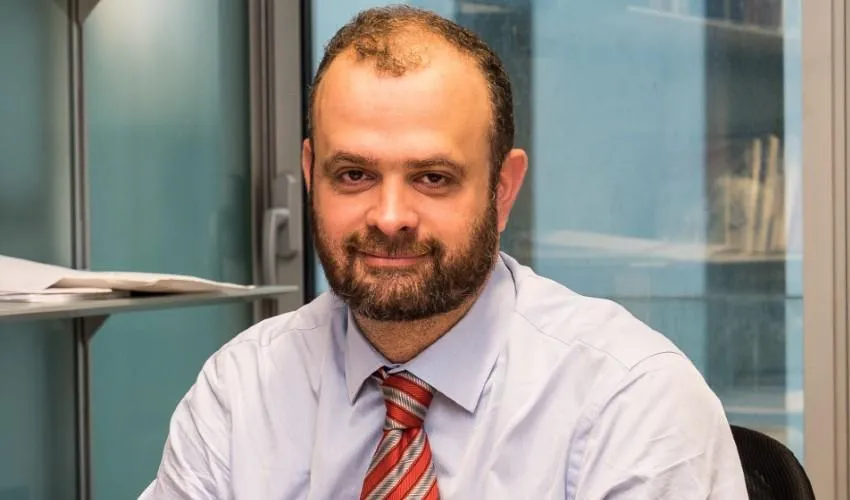
Protecting Fundamental Rights in Italy, in Europe, and in the Digital Environment
Human rights are one of the cornerstones of our society, yet they are often managed inconsistently by governments and agencies even in developed countries. The potential threats to human rights deriving from an ever more pervasive digital technology call for a totally new approach towards protecting these rights. Moreover, in the European Union the co-existence of the EU Fundamental Rights Agency and several other agencies that operate at national level is a source of unnecessary friction.
Oreste Pollicino, of Bocconi's Department of Legal Studies, is the recipient of two grants from the Italian government for research projects regarding fundamental rights in an ever-evolving environment.
His DigCon (Digital Constitutionalism: Rights, Remedies and Policy in the Algorithmic Society) project has won a €600,000 grant within the Fondo Italiano per la Scienza (FIS) program run by the Italian Ministry of University and Research. It is the only law-related project to be funded in this scheme.
Considering that private actors, such as online platforms and social networks, have become increasingly powerful, and that decision-making processes today rely more and more on the use of technology, there is increasing anxiety about certain fundamental rights (e.g., freedom of expression, data protection, dignity, and non-discrimination).
DigCon aims to design, through the drafting and adoption of a 'Digital Charter', a new standard of substantive and procedural rights against any improper and non-transparent use of Artificial Intelligence. The project will also investigate what role the Charter might play in the context of the transnational governance of the Internet and the impact it might have on 'digital sovereignty'. The creation of such an instrument would represent a step forward to protect fundamental rights in the context of the so-called algorithmic society. The Charter will take inspiration from a range of principles and values going far beyond those characterizing traditional constitutional theory. Notably, the stand of individuals themselves will be revisited in light of the new forms of power.
"The goal of DigCon is to design a new policy architecture for the protection of fundamental rights in the digital age, through the elaboration of a Digital Charter which shall take the form of a new social contract for the 21st century," says Oreste Pollicino. "In the 'algorithmic society', large, multinational social media platforms sit between traditional nation-states and ordinary individuals. Against this background, I believe that a new phase of constitutionalism must follow. First, I aim to conduct a general reframing of constitutional practices and principles as a whole. Second, this project will design a new frame of substantive and procedural rights. Finally, DigCon will investigate the positioning of the Digital Charter within the context of digital sovereignty by questioning how the relevant stakeholders might contribute to shaping the international legal landscape. DigCon will thus engage in the definition of a European approach to tackle the potential impacts of the ever-growing use of algorithms on people's lives and rights."
"FIS funds are modeled after the grants awarded by the European Research Council (ERC) to fund bottom-up projects in all three ERC-defined research macrosectors: Social Sciences and Humanities; Mathematics, Physical Sciences, Information and Communication, Engineering, Universe and Earth Sciences and Life Sciences," explains Claudia Piccioni, head of the Bocconi Grants Office. "As with the ERCs, the budget is split between Starting (for promising researchers at the beginning of their careers), Consolidator (for PhD graduates of at least seven years) and Advanced grants, for researchers already established in their field. With the first call, 47 projects were funded out of the 1912 submitted. Bocconi won three in the Social Sciences and Humanities category."
Separately but consistently, Professor Pollicino is also the principal investigator of a new project called FRAME (Framing National Institutions for Human Rights: European and Comparative Interplays) aiming to investigate the relationships between national outfits and the EU Fundamental Rights Agency, in whose Management Board sits Professor Pollicino himself representing Italy, in light of the multifaceted and multi-sided European legal system. This project has been ranked third in the latest list of "projects of high national interest" (PRIN) issued by the Italian Ministry of University and Research. The project will also involve two other Italian universities, Rome-Sapienza and Perugia.
"The FRAME project, adopting a contextual analysis of the broader role (both institutional and societal) played by national agencies, aims to define a model of a human rights society promoted by the cooperation between civil society and national human rights institutions," says Oreste Pollicino. "More precisely, the goal is to assess the involvement of private actors in the different procedures and to examine the institutional arrangements that can contribute to avoiding that these national agencies are framed as exclusively public law entities."